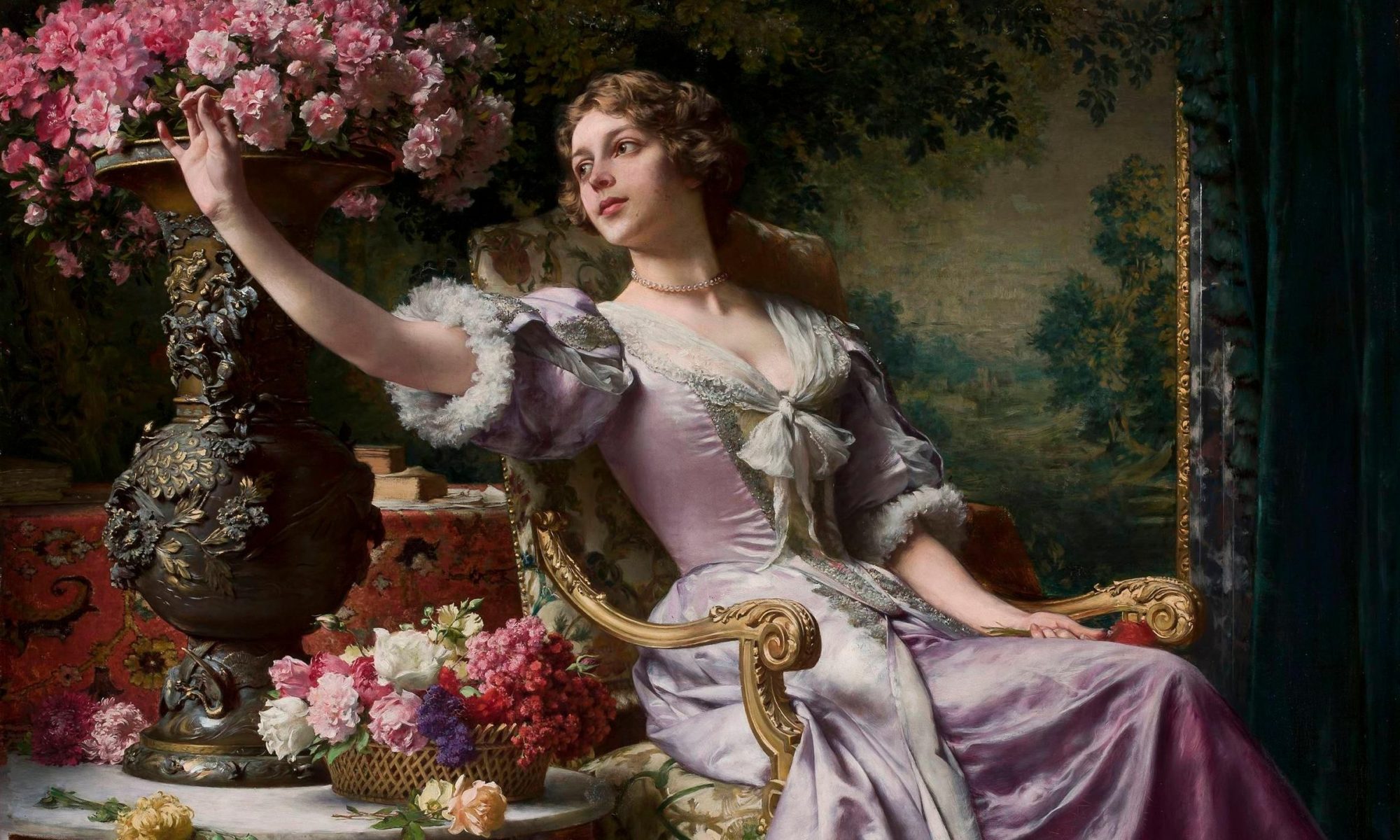My mother always wildly decorates her home for the holidays. This year she has sent us pictures of her fantastical decorations because my husband and I have decided that it wouldn’t be prudent to travel. We haven’t put up a tree at our house. However, we’ve decorated the larger houseplants with lights and hung the kids’ stockings.
As I was looking for something to post on my blog, I came across the description of this melancholy Christmas from 1914, found in My War Diary, by Mary King Waddington.
Mary was born in New York City in 1833 and later moved with her family to France. There, she became the second wife of William Henry Waddington. William later served as the Prime Minister of France in 1879 and then as the French Ambassador to the United Kingdom. Mary wrote several books about her experiences as a French statesman’s wife.
In My War Diary, which takes place after her husband’s death, she chronicles her experiences in France during WWI. During the time of the excerpt below, she is living with her daughter-in-law, Charlotte, in Paris, while her son Francis is away at war.
December 24th.
Charlotte and I went out this morning to do a little, very little shopping. She won’t have a Christmas tree, which the boys quite understand. “War times” explains everything. But they have their crèche as usual, as all the animals and rois mages are there; and hung up their stockings–one for father, and we will send him a Christmas paquet, with a plum-pudding.
Christmas Day.
Our dinner was as cheerful as it could be under the circumstances.
We had a small tree in the middle of the table, just to mark the day. We tried not to miss Francis too awfully; choked a little when we drank to our men at the front. I wonder what next Christmas will bring us, and how many places will be empty at the Christmas dinner. But we mustn’t look forward, only be thankful that after five months of war none of our men are touched.
December 29th.
The days are so exactly alike. Time slips by without our realising how fast it goes.
I am writing late, just to see the old year out. The street is perfectly quiet and dark. No balls, no réveillons. This tragic year finishes in darkness and silence. Certainly, if Paris had become too frivolous and pleasure-loving, she is expiating it now. The people themselves are so changed. They are not sad; that isn’t the word, but serious, engrossed with the men in the ranks and the women and children left behind them.
Paris is caring well for all her children. There are ouvroirs and free meals (very good) everywhere.

Dans un hôpital du Nord de la France, le décor de Christmas (Noël). 1914.















